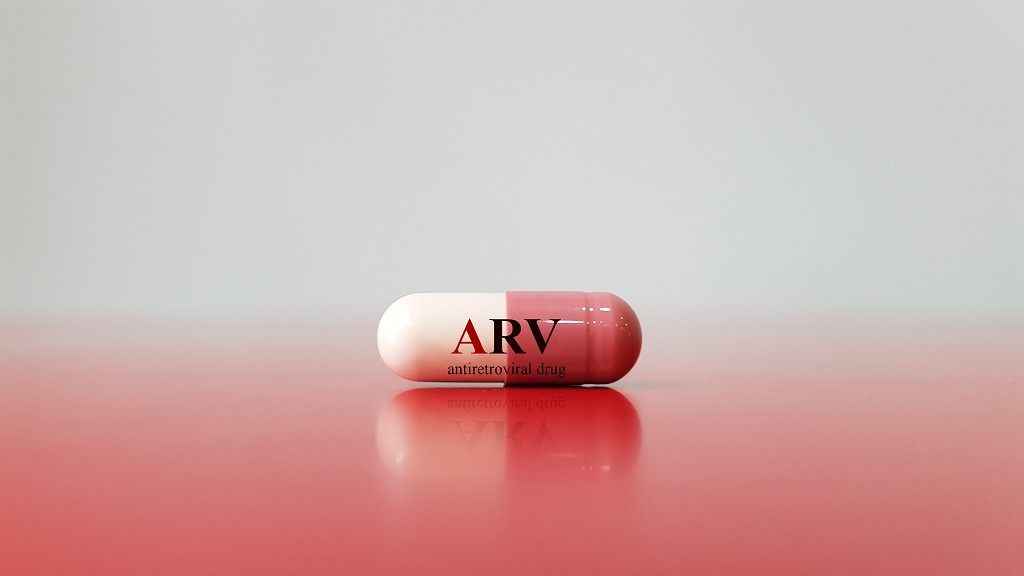Popular Reads
Top Results
Can't find what you're looking for?
View all search resultsPopular Reads
Top Results
Can't find what you're looking for?
View all search resultsCoronavirus crisis threatens AIDS care
Change text size
Gift Premium Articles
to Anyone
T
he COVID-19 pandemic is now threatening access to HIV/AIDS treatments, as countries, including Indonesia, focus on curbing the highly infectious respiratory disease.
The World Health Organization, citing its recent survey, said on Monday that more than a third of the countries in the world said they were now at risk of running out of life-saving AIDS drugs due to disruptions to supplies caused by the COVID-19 crisis.
The survey found that the failure of suppliers to deliver antiretroviral (ARV) drugs on time and a shut-down of land and air transportation services, coupled with limited access to health services within countries as a result of the pandemic, were among the causes of the disruptions.
“Twenty-four countries reported having either a critically low stock of ARVs or disruptions in the supply of these life-saving medicines,” the WHO said in a press release.
Before the shortages, a WHO estimate in 2019 found that around 8.3 million people in the 24 countries had been relying on ARVs – which are not only pivotal in maintaining and improving the quality of life for people with HIV but also could help stop the spread of the infection to others.
The recent survey, conducted ahead of an AIDS global forum, found that 73 countries had warned they were at risk of a stockout of ARVs as a result of the COVID-19 pandemic.
“The findings of this survey are deeply concerning,” WHO Director General Tedros Adhanom Ghebreyesus said.
“Countries and their development partners must do all they can to ensure that people who need HIV treatment continue to access it. We cannot let the COVID-19 pandemic undo the hard-won gains in the global response to this disease.”
The WHO has now encouraged countries to limit disruptions in access to HIV treatment through what it described as multi-month dispensing, a policy that allows medicines to be prescribed for longer periods of time – up to six months.
It remains unclear whether Indonesia is among the 24 countries on the latest WHO list, but preliminary results compiled from a WHO survey between April and June and published on its website said Indonesia was among the countries that have reported ARV disruptions caused by COVID-19.
People living with HIV have long struggled to access ARV treatment, with shortages of the drugs having often been found across the country even before the pandemic.
A survey involving 1,000 people with HIV nationwide carried out in March by the Joint United Nations Program on HIV/AIDS’ (UNAIDS) Indonesia office and nonprofit organization the Positive Indonesia Network (JIP) showed that 47.6 percent of respondents only had enough ARV stock to last for a month.
Indonesia AIDS Coalition executive director Aditya Wardhana said the coronavirus crisis had indeed disrupted the procurement of ARV drugs in Indonesia, which is highly dependent on drug imports from other countries.
The pandemic, he said, had exposed a vulnerability in access to ARV treatment across the country.
Some healthcare facilities, especially hospitals, where HIV patients usually get their medicines, have decreased the service hours for non-COVID-19 patients, while many people with HIV are also reluctant to visit these facilities for fear of catching the coronavirus, according to Aditya.
“The government, not only the Health Ministry, must prepare a clear blueprint on self-sufficiency in procuring ARV medicines. ARVs are long-term, life-saving medicines so we cannot continue relying on importing these from other countries,” he told The Jakarta Post on Tuesday.
The blueprint, he said, must include a clear deadline on when Indonesia would phase out ARV imports, when to only import active pharmaceutical ingredients for domestic manufacturing, and when to finally be able to domestically produce the drugs from scratch.
According to a 2018 government survey, roughly 640,000 people lived with HIV in Indonesia, with only 124,813 of them, or 19.49 percent, receiving crucial ARV treatment.
To date, ARV coverage in Indonesia remains among the lowest in the Asia Pacific region.
A recent global report by UNAIDS shows that the COVID-19 pandemic risks blowing HIV progress way off course. It found that the missed targets have resulted in 3.5 million more HIV infections and 820,000 more AIDS-related deaths since 2015 than if the world was on track to meet the 2020 targets.
UNAIDS urges countries to increase investment in both COVID-19 and HIV responses after finding that the funding for HIV/AIDS is decreasing globally. The HIV funding in 2019 fell by 7 percent from 2017, to US$8.6 billion.
“We cannot have poor countries at the back of the queue. It should not depend on the money in your pocket or the color of your skin to be protected against these deadly viruses,” UNAIDS executive director Winnie Byanyima said.
“We cannot take money from one disease to treat another. Both HIV and COVID-19 must be fully funded if we are to avoid massive loss of life.”










